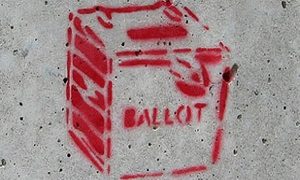 While the world’s attention is focused tomorrow on the bitter contest between Donald Trump and Hillary Clinton in the U.S. presidential elections, the e-cigarette and tobacco industries will also be keeping their eyes on other ballot-box activity.
While the world’s attention is focused tomorrow on the bitter contest between Donald Trump and Hillary Clinton in the U.S. presidential elections, the e-cigarette and tobacco industries will also be keeping their eyes on other ballot-box activity.
Indeed, one question looms even larger than who wins the White House, in terms of its practical impact on the e-cig industry: control of Congress.
While presidents rarely concern themselves with the minutiae of an issue like vaping, it is Congress that will pass any federal laws that directly affect the industry – and set the budgets for the agencies that enforce them.
The Republicans, widely seen as the more pro-business, anti-intervention of the two big parties, have held a majority in both the House of Representatives and the Senate since 2014. The Democrats will be hoping to reverse that, and are not without a chance, though they face a difficult fight and have reportedly not been helped by the Clinton email scandal.
At a local level, there are also proposals to tax e-cigarettes in both California and North Dakota, which if passed could dramatically affect the markets there.
Retailers, in particular, will feel the squeeze if these taxes are introduced. Either they will have to pass on the new taxes to their customers, reducing the cost-saving appeal of e-cigs, or they will have to absorb them and destroy their margins. The North Dakota tax is set at 56% of wholesale price; it is unclear quite how the Californian tax will be calculated, but some speculate that it could double retail prices.
The Californian tax proposal, which like that in North Dakota will be put directly to voters via a “ballot proposition” rather than being decided by law-makers, has attracted far more attention – and scores of millions of dollars more in opposition campaigns funded by the tobacco industry.
That’s unsurprising, given the vastly larger scale of the Californian market (the state has a population of around 40m, against less than a million in North Dakota).
However, the North Dakota proposal also contains some nuances which, along with other existing and proposed state taxes, provide clues as to ways that future levies might be implemented.
Closing a loophole?
Although it nominally applies only to e-liquid and not to hardware sold on its own, if the two are bundled together for sale then the North Dakota tax applies to the whole package. This has obvious implications for the way e-cigs, and particularly starter packs, are marketed.
The drafters of the proposition have also taken note of the concept sometimes mooted in the industry that synthetic nicotine might evade taxes (or other regulatory measures) applied on the basis that e-liquid is a tobacco product.
In the proposition (known as Initiated Statutory Measure 4), “liquid nicotine” is defined to mean “any liquid, gel, solution, or other non-solid or non-gas that contains nicotine made or derived in any way from tobacco”.
But it adds: “All liquid nicotine is presumed to be derived from tobacco [our emphasis] unless the person demonstrates, at the person’s sole expense and to the satisfaction of the tax commissioner, that the nicotine was made or derived from sources other than tobacco.”
The proposed new rules would also require registration of dealers and distributors with state authorities, and specifically prohibit a dealer holding a distributor’s licence, or vice-versa. The intention appears to be to prevent vape stores from mixing their own e-liquids: only distributors can do that, and “a licensed dealer may not mix, alter, or combine a solution containing liquid nicotine with any other substance”.
Existing North Dakota law on e-cigarettes is unremarkable, mandating only that vaping in public places is treated the same way as smoking, nicotine containers are child-resistant, and e-cigarettes can’t be sold to minors.
Two other states, Colorado and Missouri, are also putting new tobacco taxes to their voters but excluding e-cigarettes.
What This Means: The Congressional, and perhaps to a lesser extent presidential, elections will have a far greater impact on the industry than any tax proposal. Even in California, if Proposition 56 is passed, it will be something to adapt to rather than a measure which changes the nature of the business in the way that the federal deeming regulations have.
However, state taxes are important as influencers and precedent-setters. You could say that every state which taxes e-cigs contributes to the normalisation of vapour taxes, and provides a potential model for other states.
Having said all that, it is worth remembering that e-cigs would only be suffering – as so often – collateral damage in the war on smoking: both states, especially the Midwestern one, have low tobacco taxes and the main thrust of the ballot propositions is to increase them.
So these proposals are not primarily motivated by enmity toward vapour (although there are certainly other signs of that in California), and it is noteworthy that the other two states where tobacco taxes could be increased are not addressing e-cigarettes.
– Barnaby Page ECigIntelligence staff
Photo: OpenDemocracy






